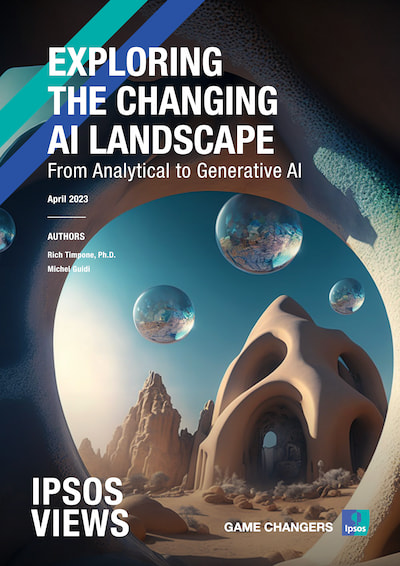ChatGPT and the rise of generative AI: navigating the changing landscape of AI
 While the domain of Generative Artificial Intelligence (AI) has been growing in recent years, ChatGPT accelerated its adoption and broke through as the first “mass” Generative AI application. It is important to take notice and put this and other emerging tools in perspective as the implications of the technologies will be far reaching and very fast.
While the domain of Generative Artificial Intelligence (AI) has been growing in recent years, ChatGPT accelerated its adoption and broke through as the first “mass” Generative AI application. It is important to take notice and put this and other emerging tools in perspective as the implications of the technologies will be far reaching and very fast.
As with the advent of the internet, this new technology will change how we work, consume, communicate, get informed and educated, etc. The rise of Generative AI will have similar seismic consequences on how we live our lives. This time though, the pace of acceleration is so incredible that these tools – which are shocking and awing us now – will seem quaint by the end of the year because their capabilities are increasing exponentially, and they are being embedded in other tools and services far faster than past advances.
The rise of Generative AI will have similar seismic consequences on how we live our lives.
To put the pace of adoption in perspective, even in this era of rapid internet adoption, ChatGPT’s embrace has been astounding. For comparison, it took 3.5 years for Netflix to reach one million users. Since then, it took Facebook 10 months, Spotify five months and Instagram 1.5 months to reach this level. In comparison, ChatGPT reached its first million users in only five days.
The recognition of the potential of the tool and a fear of missing out (FOMO) has led a huge number of individuals and companies to begin exploring its potential.
It is our intent to put in perspective the opportunities while recognizing some of the limitations and watchouts for Ipsos and our clients to consider in the exploration and implementation of ChatGPT, LLMs (Large Language Models), even newer multimodal models (text and image like in the newly released GPT-4), and Generative AI more generally.
In this regard we will see that while the potential, and use cases, are often new, the evaluative criteria that have been used for other areas of AI, Machine Learning, and analytics in the past will allow teams to get the greatest value out of the tools.
As with past major transformations, there is ample reason to be both excited and concerned. Ipsos is taking advantage of advances possible with this new technology, as well as building on the existing tools by leveraging our knowledge and data to improve the models, and helping our clients navigate the new landscape.
In this paper
- Generative AI and the AI landscape
- "AI will not replace you – someone using AI will" – Opportunities!
- Limits, risks and threats in trust, beauty and justice
- How Ipsos helps navigate this brave new world




